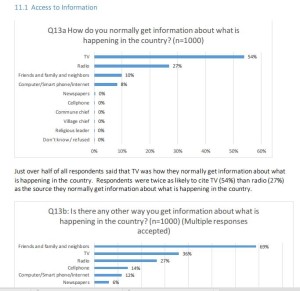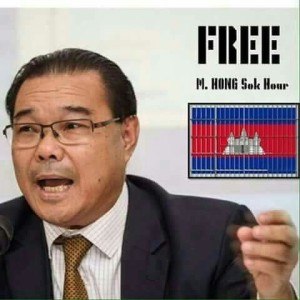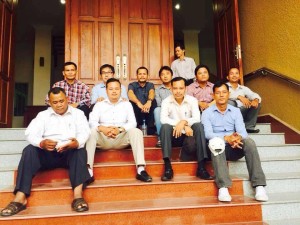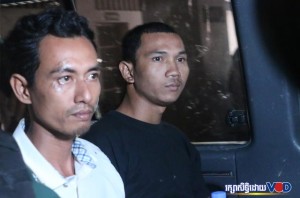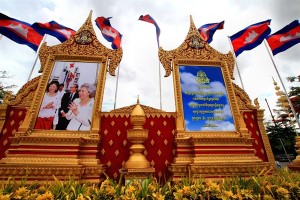Critical Thinking & Political Analysis:
Experiencing through a lifelong learning and a lifelong antagonising of Cambodia politics has not been placing myself into a vague cliché. Hearing through rhetoric of public leader(s) to professional club(s), you might loss your sight to comprehend what are their “critical thinking”, “political correctness”, and “so-called professionalism” etc. at. With this fundamental doubt, I am easily called “sarcastic”, “ill-minded”, or “taunted” etc. If sometime, someone explicitly used direct word to some individual(s)’s bad behaviour or irresponsibility of their duties, that person could be become the “accuser” to the “accused” by the middleman without having a “proper critical thinking”. Sometime, if one made a general statement in their writing, such general statement could not be free from being labeled as being an “accuser” as such general statement could be made into the identified “accuser” and the “accused” by the member. Sometime, the good intention to advise for a beneficial solution, such advise could be dragged into something else and you could be responded to focus on your club, not my club etc. And sometime, I am very concerned on the disarray of the argument on “majority” and “minority” political mantra.
 Up to today, the pure democracy has not existed in this world. Up to today, the pure communism has not existed in this world. The middle path engagement has been visible everywhere. But those countries that are moving away from this middle path are practically fragile states or failed states respectively. Our well-known ancient political philosophers such as Plato said “you should not honor men more than truth”, or legendary Socrates who accepted to die than giving up his “true word”, or Lord Buddha who advocated for “Dhamma-thepady Democracy or Dhamma Supremacy Democracy” since thousand centuries ago, have lighted up till today. Dhamma Supremacy Democracy literally means “rule of laws democracy”. In practice, Bhikkhu monks used major consensus to make decision-making upon well-adopted Vinaya or rule of laws. At least, there are three levels of “rule of laws” taught by Lord Buddha: the conventional truth or man-made rule of laws (Vinaya or disciplinary discourse), natural truth of rule of laws (Dhamma or natural truth of long discourse”, and ultimate truth or ultimate rule of laws (Abbhidhamma or ultimate truth of metaphysic discourse”. Buddha also addressed the three majority policy such as self supremacy (Atta-thepady), populace supremacy (Loka-thepady), and Dhamma supremacy (Dhamma-thepady) which he concluded that all those supremacy are beneficial by resembling within the line of “rule of laws” or Dhamma, not a single identity.
Up to today, the pure democracy has not existed in this world. Up to today, the pure communism has not existed in this world. The middle path engagement has been visible everywhere. But those countries that are moving away from this middle path are practically fragile states or failed states respectively. Our well-known ancient political philosophers such as Plato said “you should not honor men more than truth”, or legendary Socrates who accepted to die than giving up his “true word”, or Lord Buddha who advocated for “Dhamma-thepady Democracy or Dhamma Supremacy Democracy” since thousand centuries ago, have lighted up till today. Dhamma Supremacy Democracy literally means “rule of laws democracy”. In practice, Bhikkhu monks used major consensus to make decision-making upon well-adopted Vinaya or rule of laws. At least, there are three levels of “rule of laws” taught by Lord Buddha: the conventional truth or man-made rule of laws (Vinaya or disciplinary discourse), natural truth of rule of laws (Dhamma or natural truth of long discourse”, and ultimate truth or ultimate rule of laws (Abbhidhamma or ultimate truth of metaphysic discourse”. Buddha also addressed the three majority policy such as self supremacy (Atta-thepady), populace supremacy (Loka-thepady), and Dhamma supremacy (Dhamma-thepady) which he concluded that all those supremacy are beneficial by resembling within the line of “rule of laws” or Dhamma, not a single identity.
Look at Cambodia, there seems no core value of “rule of laws” have been embedded. Many civilized nations have evolved their political arguments into monarchy, republican, democrat, or conservative etc. to maximize the interest of their nations. But Cambodia has likely evolved into more self-inflicting political argument than those progressive political embeddedness. While Cambodia has adopted conventional man-made truth (rule of laws) called “Constitution” in 1993, none of the powerful leader has ever dedicated himself to build this truth for this country. As a result, the embeddedness of disarrayed citizenship has been omnipresent displayed. For instance, when two Cambodians are facing road-accident argumentation with each other, the two shall accuse each other to seek “wrong” and “right” rarely upholding principle to depend on nation-state’s rule of laws. And for the powerful leader(s), they will use “rule by laws” to accuse or punish individuals or “inferiors” at their helm to legitimize righteousness like what Khmer saying popularly coined “not kick the ball but the player”. Constitution has been born by the attempt of “critical thinking” but the Constitutional Council, the three branches of government, and the citizens in general, are running out their inner “critical thinking”. To divulge it, I wish to share original writing of “critical thinking” by Peter Facione of Santa Clara University with italic letters below:
Critical Thinking: What it is and why it counts
Peter Facione, Santa Clara University.
Critical thinking is a pervasive and purposeful human phenomenon. It is thinking that has a purpose such as proving a point, interpreting what something means or solving a problem.
Critical thinking is about how you approach problems, questions and issues. The ideal critical thinker can be characterized not merely by her or his cognitive skills but also by how she or he approaches life and living in general.
Good critical thinkers can also be described in terms of how they approach specific issues, questions or problems. The experts state critical thinking includes:
- clarity in stating the question or concern
- orderliness in working with complexity
- diligence in seeking relevant information
- reasonableness in selecting and applying criteria
- care in focusing attention on the concern at hand
- persistence through difficulties are encountered
- precision to the degree permitted by the subject and the circumstances
How does a poor critical thinker approach specific problems?
- disorganized and overly simplistic
- spotty about getting the facts
- apt to apply unreasonable criteria
- easily distracted
- ready to give up at the least hint of difficulty
- intent on a solution that is more detailed than is possible, or
- being satisfied with an overly generalized and uselessly vague response

